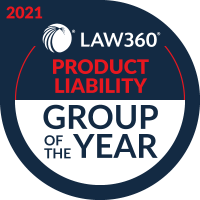On December 1, 2018, several amendments to Rule 23 of the Federal Rules of Civil Procedure went into effect. While not transformative, the amendments clarify the process by which federal courts assess and approve class action settlements.
Most importantly, the amendments provide guidance on the preliminary approval procedure. The amendments also allow for more flexibility on how to provide notice to class members, and seek to deter bad faith objectors.
Preliminary Approval of Class Action Settlements
Before the 2018 amendments, when the parties to a class action agreed to settle, the plaintiffs would typically ask the court to grant preliminary approval of the settlement. Although this preliminary approval process is widespread, Rule 23 did not previously recognize it. Instead, the courts developed standards for preliminary approval, largely to ensure that giving notice to class members—and the cost and expense associated with the notice—wouldn’t end up being a wasted effort.
Although there are a variety of criteria for determining whether to grant preliminary approval, courts have generally focused on whether the settlement resulted from arm’s length negotiations and whether its terms fell within the range of possible approval, based on such key factors as the litigation risks avoided through the settlement and its value as compared to the potential recovery. If, in a damages case, the court found that the requirements for preliminary approval were met, it would usually direct the parties to give notice to the class, establish a schedule for any objections and opt-outs, set a final approval hearing, and, if the class hadn’t been previously certified, conditionally certify the class for settlement purposes and appoint class representatives and class counsel.
The new amendments codify the preliminary approval process within Rule 23 but with some changes. Rule 23(e)(1)(B) now provides that before the court directs notice to the class, the court must be satisfied that it “will likely be able to” approve the proposed settlement and certify the proposed settlement class. With respect to the standard for approval, the rule sets out specific factors to consider:
- The class representatives and class counsel have adequately represented the class;
- The proposal was negotiated at arm’s length;
- The relief provided for the class is adequate after taking into account: (a) the costs, risks and delay of trial and appeal; (b) the effectiveness of any proposed method of distributing relief to the class; (c) the terms of the proposed attorneys’ fee award; (d) any side agreements to the settlement; and
- The proposal treats class members equitably relative to each other.
Procedural Fairness Analysis
The Civil Rules Advisory Committee characterized the first two factors as “procedural” considerations—they focus on the adequacy of the negotiations and litigation preceding the settlement.
Relevant subfactors include the extent to which the parties had a basis to know the strengths, weaknesses, and value of the claims, including through discovery; whether a litigation class was certified; whether a neutral mediator assisted with settlement negotiations; and how, if at all, attorneys’ fees for class counsel were negotiated and agreed upon.
Substantive Fairness Analysis
The third and fourth factors identified above (including the four subfactors) go to the “substantive” terms of the proposed settlement.
The Advisory Committee offered examples of the kinds of information that may be relevant in applying these standards: the benefits the settlement will provide to class members, the litigation risks and range of possible outcomes, the likelihood of class certification if the settlement were not approved, and the proposed claims process.
While at first glance these changes seem to impose new and significant requirements, many plaintiffs already provide the above information as part of their motion for preliminary approval. Moreover, the factors specified in Rule 23(e)(2) are not meant to be exhaustive or to displace the traditional factors courts have applied in determining whether a settlement is fair, adequate, and reasonable. Thus, the flexible inquiry under the new amendments does not exclude other factors built up in the case law, such as the defendant’s financial condition.
Likelihood of Settlement Class Certification
Rule 23(e)(1)(B) also requires the court to determine if it will likely be able to “certify the class for purposes of judgment on the proposal.” The Advisory Committee explained that “[t]he ultimate decision to certify the class for purposes of settlement cannot be made until the hearing on final approval of the proposed settlement.”
So in cases where no class has been previously certified, the court should not conditionally certify a class for purposes of settlement and appoint class counsel. Instead, the court should determine whether it likely will be able to certify the class upon final approval. And if the court is satisfied that the answer is “yes,” it then evaluates the parties’ proposed method of giving notice to the class members.
Notice
Rule 23(c)(2)(B) continues to require “the best notice that is practicable” to class members in damages cases, but the amendments allow for more flexibility.
U.S. mail has long been the default choice for providing notice. The 2018 amendments, however, recognize that with the significant advances in modern technology, email or other electronic means may now be more effective for notifying class members in certain cases. Thus, without mandating any particular form of notice, Rule 23(c)(2)(B) now states that in additional to mail, notice may be made through “electronic means, or other appropriate means.”
The Advisory Committee indicated that parties and courts should adopt the method or combination of methods most likely to provide effective notice to class members under the specific circumstances of the case.
Settlement Objectors
By raising legitimate concerns, objectors can fill a valuable role in ensuring that a class action settlement is fair. But so-called “bad faith” or “professional” objectors who submit objections and file appeals solely to coerce a payoff have become common.
Although these objectors do nothing to help the court evaluate the settlement, the risks and delays associated with an appeal have sometimes led parties to decide that it is easier to pay the objector to withdraw the appeal. This practice continued even after Rule 23 was amended in 2003 to require disclosure of any side agreement connected with a settlement and court approval for withdrawing an objection.
Rule 23 has now been further amended to deter bad faith objectors. First, Rule 23(e)(5)(A) prohibits vague or summary objections, requiring an objector to state specific grounds for the objection and to explain whether it applies only to the objector or also to the class or a subset of the class. Second, while court approval is no longer required before an objection can be withdrawn, court approval is now required for any payment made in exchange for withdrawing an objection or dismissing an appeal.
Appeals
Rule 23(f) has also been amended, to clarify that no appeal may be taken from an order granting or denying preliminary settlement approval. Under the new amendments, a grant or denial of preliminary approval does not include a grant or denial of class certification, which is required under Rule 23(f). So any appeal would be premature.
Conclusion
In many respects the new class action settlement amendments merely codify existing practices. The amendments do, however, make some meaningful changes to the approval process while providing needed clarity.
The extent of the changes caused by the amendments remains to be seen. Some courts have analyzed preliminary approval by considering the new Rule 23 standards together with the traditional procedural and substantive standards. Other courts have applied those pre-existing standards without addressing the new amendments, an approach that suggests adhering to the traditional standards for preliminary approval may be sufficient to comply with the amendments.
Our Commitment to Excellence
Girard Sharp LLP represents consumers, investors, and institutions in class actions and other complex litigation nationwide. Our class action lawyers have obtained multimillion-dollar recoveries for victims of unfair and deceptive practices in antitrust, financial fraud, and consumer protection matters against some of the country’s largest corporations, including Raymond James, John Hancock, Sears, Yahoo, and JP Morgan Chase. Girard Sharp LLP has earned top tier rankings from U.S. News and World Report for Securities and Class Action Litigation and was selected as a 2018 Elite Trial Lawyers finalist by the National Law Journal.





